Exploring Emissions Cap Programs: Washington’s Cap-and-Invest

With Washington’s cap-and-invest program now in full swing, we’re discussing goals, timelines, and how it may impact your organization.
Exploring Emissions Cap Programs: California’s Cap-and-Trade

We’re kicking off this series on emissions cap programs with California’s cap-and-trade program, which started in 2012.
The Importance of Internal Controls for ESG Data and Reporting
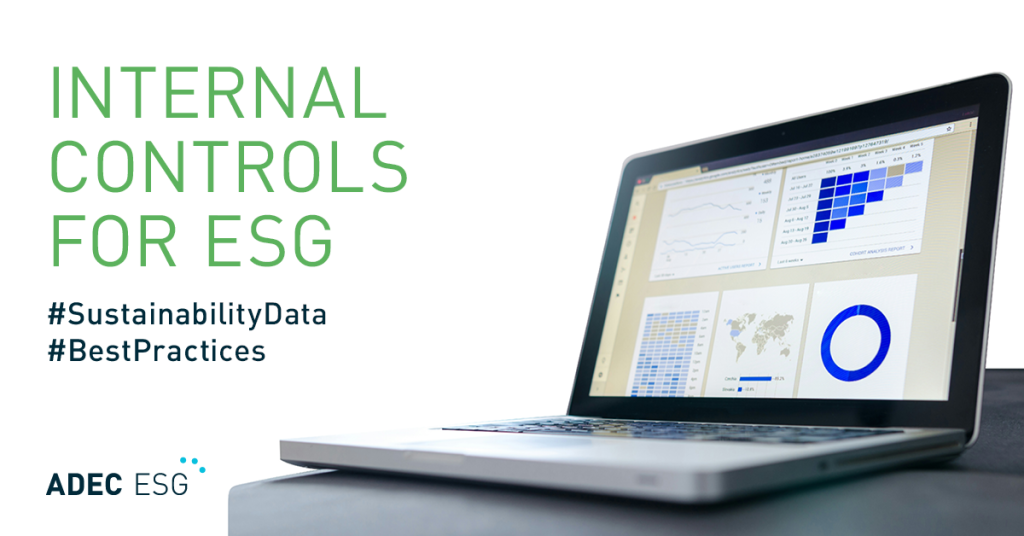
How can you improve the accuracy and reliability of your ESG data, build trust, and manage risk? Establishing internal controls for your ESG data could be the answer in the face of a constantly evolving ESG regulatory space.
Back to Basics: The Essentials of GHG Inventories

With stricter ESG reporting regulations rising in popularity around the world, understanding your greenhouse gas data is more important today than it has ever been before. In this article, we review the essentials of GHG inventories and what you should consider before getting started.
Measuring Social Impact: Challenges and Best Practices
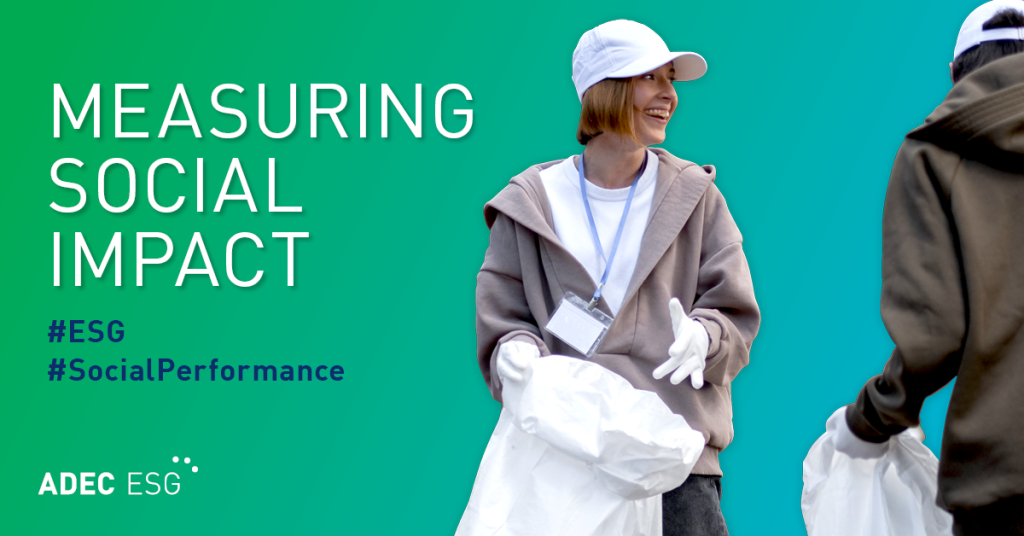
From diversity and inclusion to labor practices and workplace safety, an organization’s impact on the “S” in ESG can be difficult to measure and track. We address some of the challenges that quantifying social impact presents and provide some solutions for organizations that are looking to make it a priority.
Understanding Your Scope 3 Inventory: Examining Relevancy
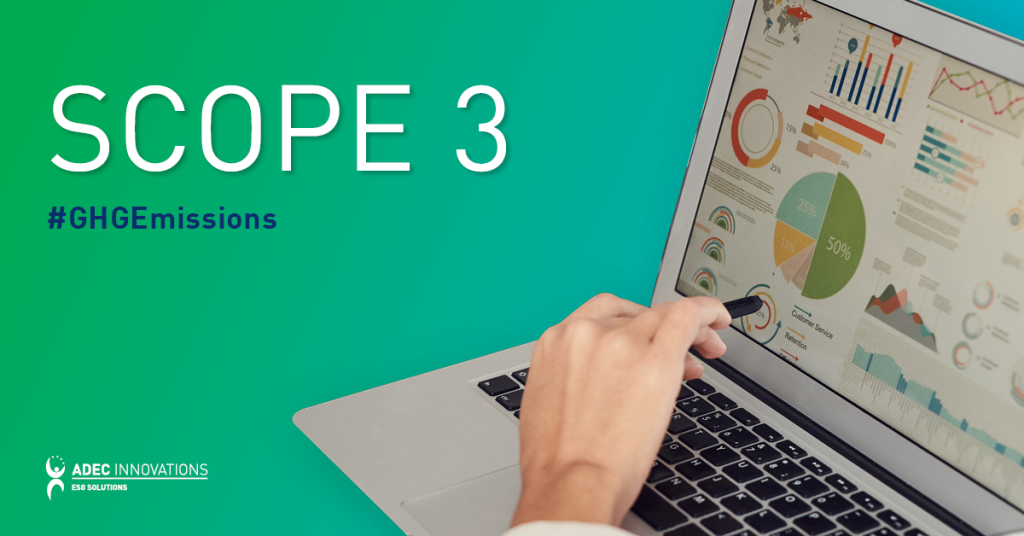
What steps should you take to begin your scope 3 GHG emissions inventory? Below, we explore a few of the reviews and analyses you’ll need to get started.
KPI Monitoring: Challenges and Opportunities in Decarbonization
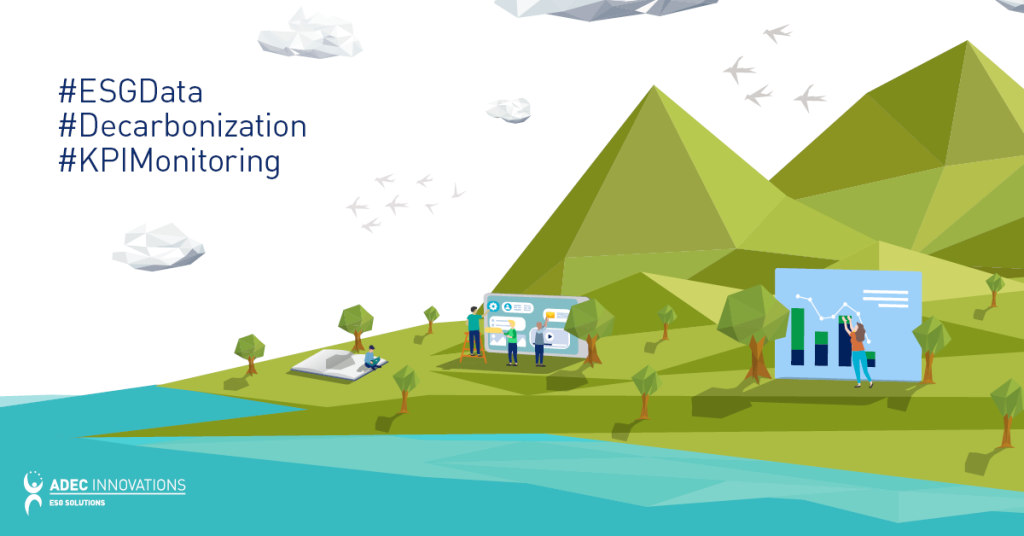
Greenhouse gas (GHG) data tracking for decarbonization can pose many challenges. Can we turn those challenges into opportunities?
How to Account for Remote Work in Your GHG Inventory
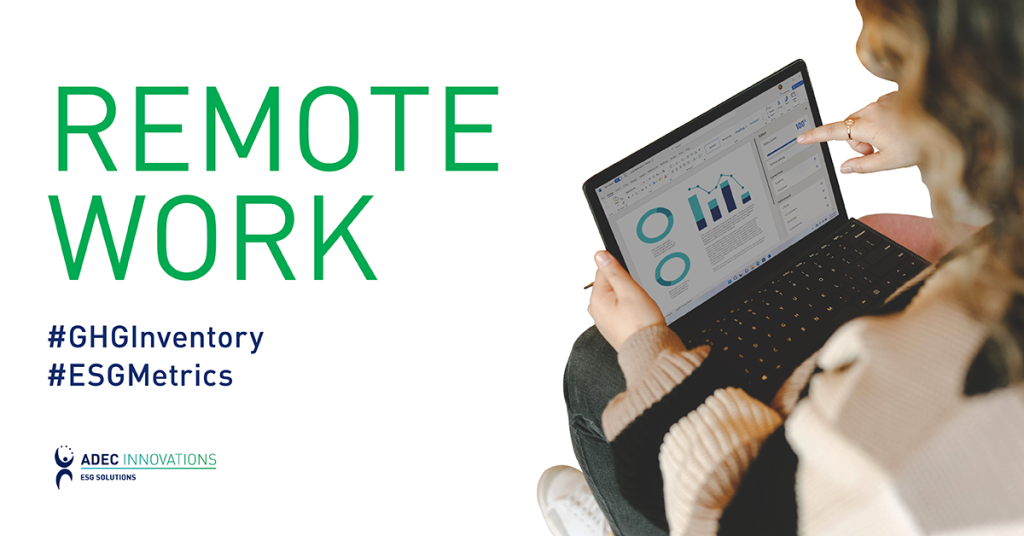
With working from home now a part of everyday life for many companies and their employees, it’s important to account for emissions from remote work in your GHG inventory.
Seasons of ESG: Navigating Sustainability Initiatives
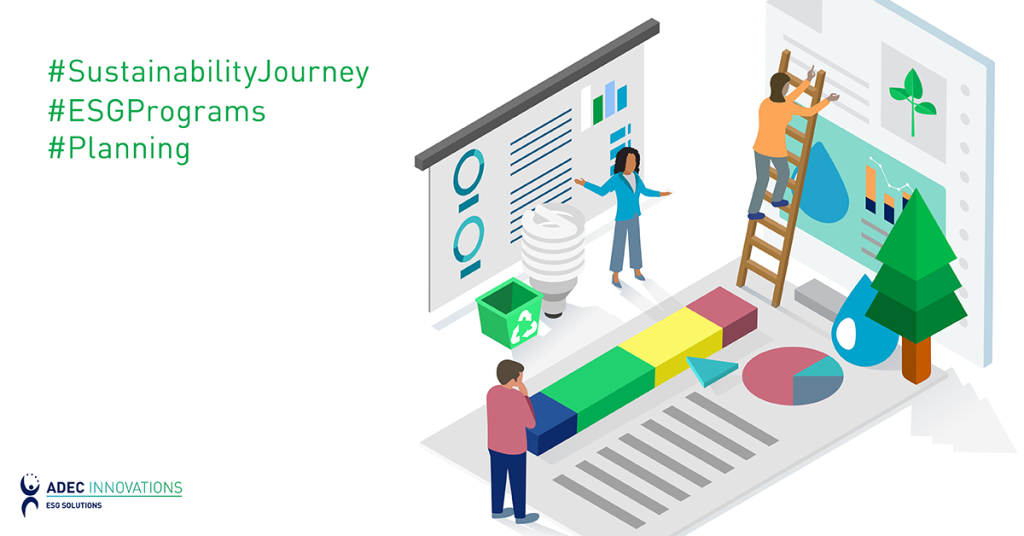
Demands on ESG programs are at an all-time high. Here, we break down several key areas within ESG to help you visualize a yearly timeline and tackle your initiatives effectively.
2022 in Review: Growth in Sustainability
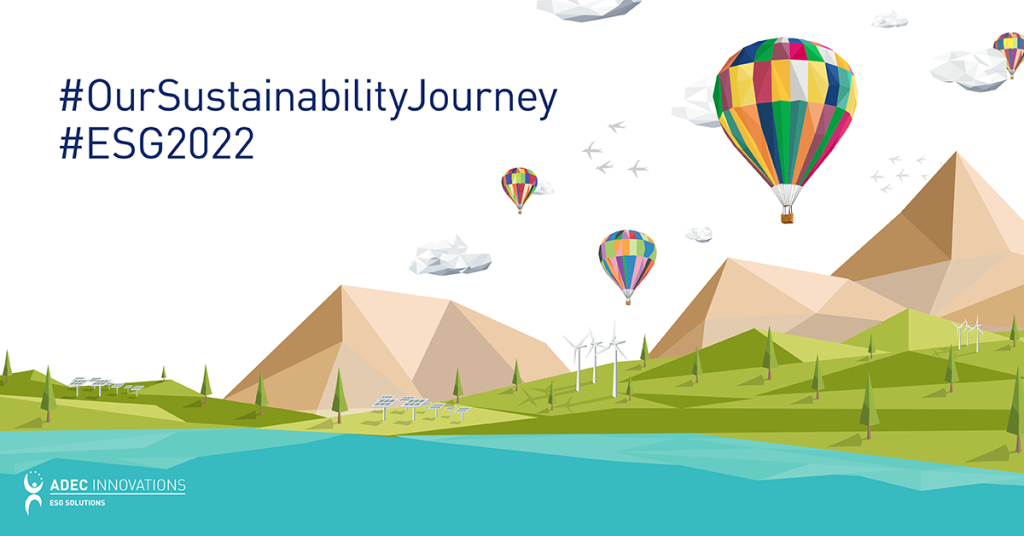
The ESG space took major strides in 2022—and ADEC ESG Solutions followed suit.
Environmental Science or Systems Science?
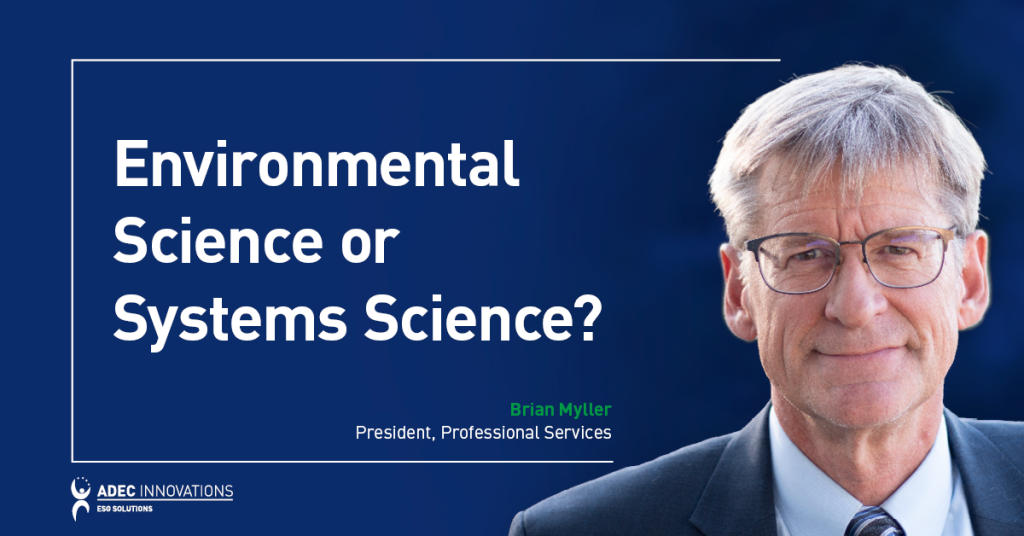
With more data comes greater expectation—and opportunity.
The Role of Diverse Data: Reflections from a Multidisciplinary ES Career
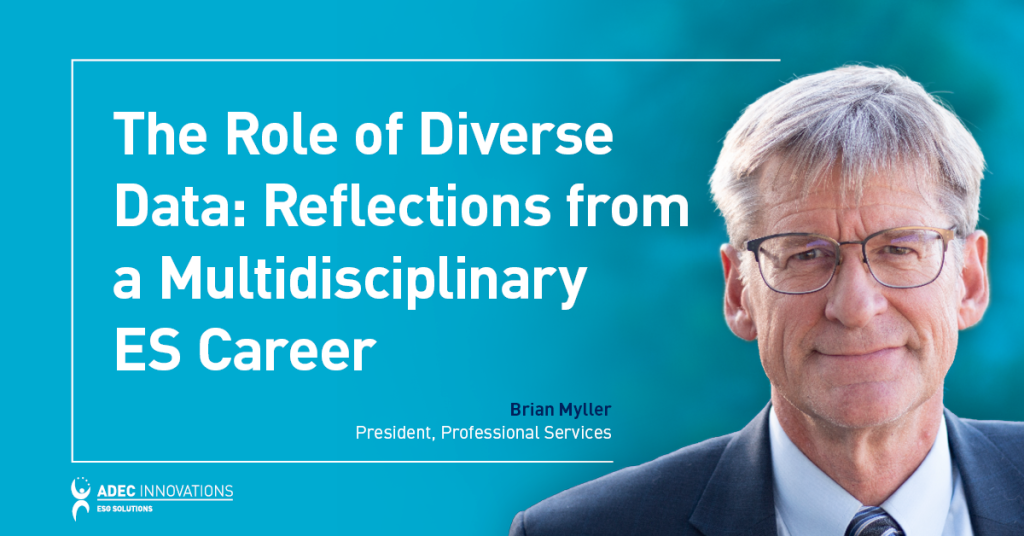
Harnessing our collective expertise and data, the possibilities for creating resiliency and transforming risk into positive impact and value are limitless.
4 Answers to Your Sustainability and ESG FAQs
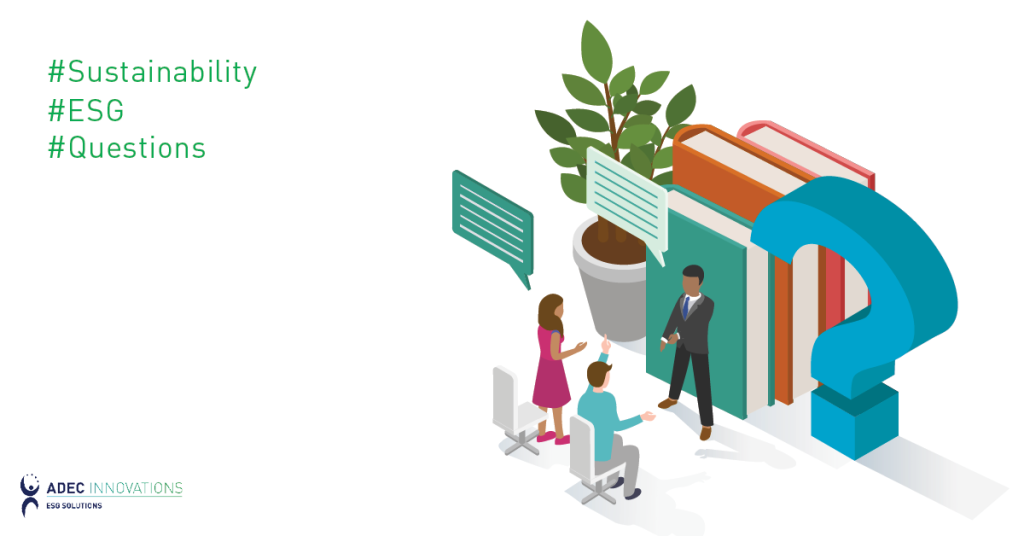
Find answers to your sustainability and ESG questions in our FAQ round-up.
7 Reasons You Should Conduct A Materiality Analysis
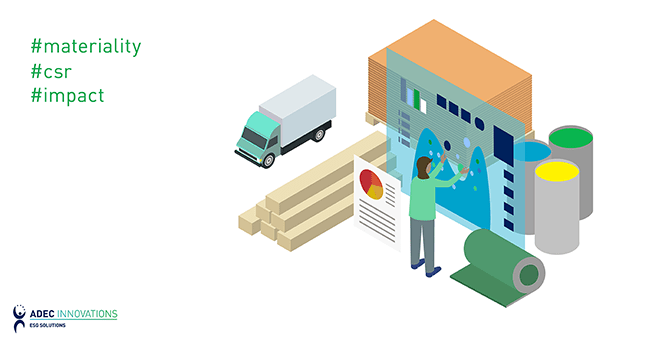
Companies are increasingly seeing the importance of developing a sustainability strategy to maximize long-term value creation and mitigate against increasing climate-related risks.
The Importance of Machine Learning and Building a Data Set in Business

Machine learning can significantly contribute to business’ efficiency. It can help identify which products and services sell well during defined periods, allowing companies to adjust their sales operations accordingly to improve their bottom line. Machine learning can also detect which parts of a business process are taking up too much time and resources, enabling companies to make improvements before profits are undermined.
When Your Brand is on the Line, Supply Chain Data is Vital | Part 2

We examine some best practices for managing your brand’s supply chain data.
When Your Brand is on the Line, Supply Chain Data is Vital | Part 1

When your brand is on the line, gain visibility into and control over your supply chain data.
MetricsTrac: For Timely and Accurate Sustainability Reports
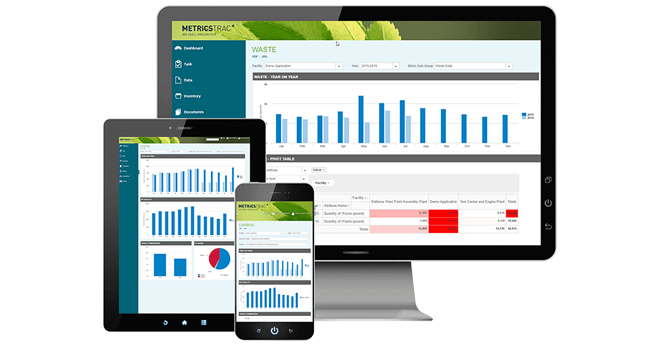
Creating a sustainability report can be a time-intensive process. It involves collecting, evaluating and interpreting large amounts of data. Many companies usually have to source and put together sustainability data from different facilities, locations and teams. And some companies do not have the tools to manage and report their sustainability data. These situations can compromise the timeliness and quality of a sustainability report, which in turn can negatively affect a company’s reputation among stakeholders. For this reason, a sustainability metrics tracking application like MetricsTrac is essential when it comes to maximizing the usefulness of your data and coming up with a timely and accurate sustainability report.
Defining a Dynamic Data Center for Sustainability Strategies

Continued growth is expected in the emerging DCIM (Data Center Infrastructure Management) market, which may reach about $1 billion in 2016. In 2013, the efficiency industry was driven by green technology such as energy management software and virtual audits. It is also noted that in past year, the energy efficiency market gained greater acceptance from large commercial customers, according to executives at Johnson Controls and Groom Energy. On the other hand, executives from Aircuity and FirstFuel shared that better data and reporting helped the market, while Conservation Service Group CEO Stephen Cowell said technology and market convergence were responsible for growth.
Strong Data Management and Energy Management Systems

More and more extreme weather conditions have raised fears for coming climate change impacts around the globe.
FCS Opens New Office in LA

After 30 years of unparalleled environmental planning services, FirstCarbon Solutions (FCS), a leader in global sustainability solutions, is formally re-entering the LA market with the opening of its new office in West Los Angeles, located at 11755 Wilshire Blvd., in Suite 1660.
FCS Expands Services to San Jose Area

With our newly opened San Jose office, we are able to offer our clients expanded client services and technical expertise.
Calculating Greenhouse Gas Emissions – 5 Tips to Speed Things Up!

Recently, a company posted on 2degrees Network’s forums, in search of a more efficient approach to GHG data collection. The said company had successfully implemented a carbon reporting program internally, but was struggling with collecting utility consumption data manually.
FirstCarbon Solutions and CDP Expand Partnership
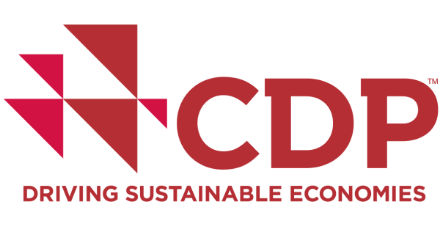
A partnership: Working together since 2011, FirstCarbon Solutions (FCS) and CDP have expanded their already strong partnership. As organizations that share a common mission and recognition that sustainability matters, FCS and CDP are focused on helping companies advance their business practices not only to improve the environment, but also to strengthen an organization’s bottom line. […]